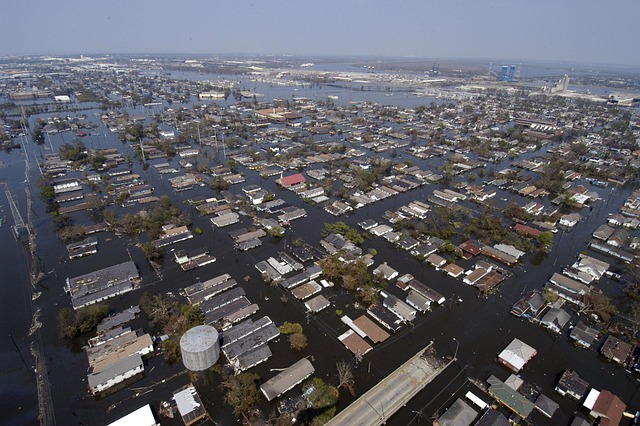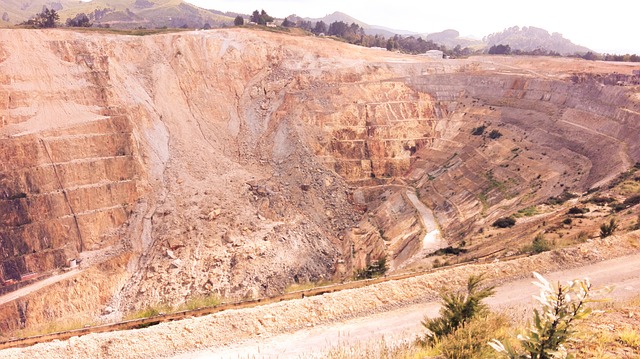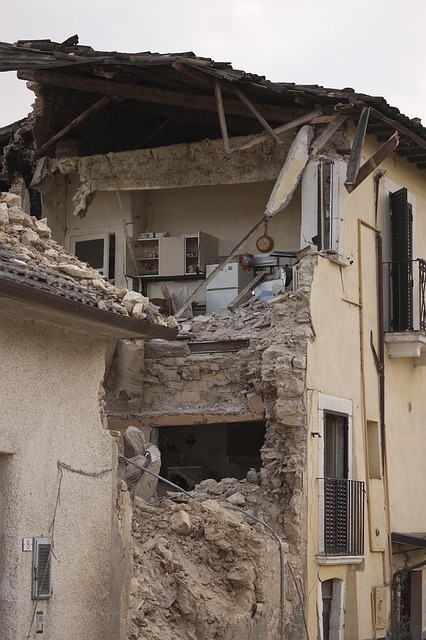After a Denver earthquake, assessing infrastructure damage is crucial for disaster recovery. Business owners and city officials must inspect high-risk areas, prioritize repairs for structural integrity, essential services, and safe re-entry. Engaging Disaster Recovery Services Denver specialists aids in repairs and data restoration, while insurance protects operations. Efficient damage assessment leads to faster claims, system restoration, and community recovery. Effective disaster recovery relies on robust emergency communications, clear evacuation protocols, collaboration between authorities and organizations, cyber security risk assessments, and restoring critical city services and utilities.
“After a devastating earthquake, Denver must prioritize effective recovery strategies. This article outlines best practices for a swift and secure comeback. From assessing infrastructure damage to mobilizing disaster recovery services in Denver, each step is crucial. We explore efficient evacuation plans, the restoration of critical city services, and enhancing emergency communications. By implementing these strategies, Denver can ensure a resilient future, demonstrating its ability to bounce back from unforeseen disasters.”
- Assessing Infrastructure Damage Post-Earthquake
- Prioritizing Emergency Communications During Recovery
- Safely Evacuating and Relocating Denver Residents
- Efficiently Mobilizing Disaster Recovery Services Denver
- Restoring Critical City Services and Utilities
Assessing Infrastructure Damage Post-Earthquake

After a Denver earthquake, assessing infrastructure damage is a crucial step in the disaster recovery process. Business owners and city officials must conduct thorough inspections to identify critical failures and plan for efficient repairs. This includes evaluating structural integrity, ensuring safe re-entry of buildings, and assessing the state of essential services like water supply, electricity, and transportation networks. Early assessment teams should focus on high-risk areas, such as commercial hubs, healthcare facilities, and schools, to mitigate risks and prioritize recovery efforts.
In the aftermath, businesses can leverage disaster recovery services Denver specialists who offer expert guidance on infrastructure repairs and data restoration after a breach. Given that earthquakes can cause significant disruptions, having robust business interruption insurance Denver is vital for small businesses looking to protect their operations and sensitive data. Efficient damage assessment leads to more accurate claims, faster restoration of critical systems, and ultimately, quicker recovery for the community.
Prioritizing Emergency Communications During Recovery

Effective disaster recovery starts with robust emergency communications. In the chaos following a Denver earthquake, clear and timely information can be a lifeline for residents and businesses alike. Prioritizing these communications ensures everyone receives critical updates from reliable sources, reducing confusion and panic. Disaster recovery services in Denver should include strategies that facilitate seamless information flow, such as leveraging technology like business continuity planning software to automate alerts and notifications.
A well-crafted disaster recovery strategy consulting approach can help Denver build resilience against future earthquakes. This involves establishing multiple communication channels—from traditional media to social media and text alerts—to reach diverse audiences. Additionally, offsite data protection Colorado is paramount; businesses should regularly back up essential information outside the affected area, ensuring it remains accessible even in the event of a major disaster. By integrating these measures into their overall emergency response plans, Denver can enhance its ability to recover swiftly and effectively from seismic events.
Safely Evacuating and Relocating Denver Residents

In the event of an earthquake, safely evacuating Denver residents is paramount for effective disaster recovery services. Local authorities should guide citizens on the best routes to exit buildings and areas prone to damage or collapse. Clear communication through emergency alerts and public announcements ensures everyone understands evacuation protocols, including designated assembly points away from hazardous zones. Collaborating with local emergency management agencies and utilizing data backup solutions Denver relies on can streamline this process by providing real-time information about affected areas, available resources, and shelter locations.
After evacuating, relocating residents to safe havens or temporary housing is crucial for their well-being. Businesses and communities should have established business continuity and resilience strategies in place to coordinate these efforts. This includes ensuring data center recovery after a disaster by employing robust backup systems and redundancy measures. Effective relocation involves providing essential supplies, medical aid, and psychological support, especially for vulnerable populations like the elderly and those with disabilities.
Efficiently Mobilizing Disaster Recovery Services Denver

Efficiently Mobilizing Disaster Recovery Services Denver requires a coordinated effort among various stakeholders. Local authorities, emergency response teams, and private sector organizations must work together to ensure swift action during and after an earthquake. One crucial step is conducting comprehensive cyber security risk assessments in Denver to safeguard digital infrastructure, as these assessments help identify vulnerabilities and plan for robust data backup and recovery services.
Additionally, timely communication strategies are essential. Effective alerts and warnings can provide critical seconds or minutes for residents and businesses to take protective measures. Post-disaster, the rapid deployment of Roof Restoration Denver services is vital to secure buildings and prevent further damage. Efficient mobilization of disaster recovery services ensures that Denver communities can recover faster, minimizing economic impacts and enhancing overall resilience.
Restoring Critical City Services and Utilities

After a significant earthquake, restoring critical city services and utilities is paramount for Denver’s disaster recovery. The first steps involve assessing the extent of damage to infrastructure like water, power, and gas lines. This includes deploying emergency response teams to identify broken pipes, downed power lines, and gas leaks, ensuring public safety. Efficient communication networks are crucial during this phase; utilizing text alerts, social media updates, and local radio stations helps keep residents informed about service disruptions and recovery progress.
Effective disaster recovery services in Denver should include a comprehensive cyber attack response plan to safeguard digital infrastructure. Given the increasing reliance on technology for city operations, protecting against potential cyber threats is vital. Additionally, addressing post-disaster challenges like mold removal in Denver homes and businesses is essential for public health and property preservation. Prompt action to pump out flooded basements and decontaminate affected areas prevents long-term damage and ensures a faster recovery process.
In the aftermath of an earthquake, effective recovery in Denver hinges on coordinated efforts across various sectors. By prioritizing infrastructure assessment, enhancing emergency communications, ensuring resident safety during evacuation, and efficiently mobilizing specialized disaster recovery services Denver, the city can expedite its restoration process. Restoring critical city services and utilities is paramount to aiding residents’ return to normalcy. Implementing these best practices equips Denver with the tools necessary to navigate earthquake recovery, ensuring a more resilient and swift response for future events.



